Eighty percent of the world’s foie gras is produced in France, where it is protected by law as part of the country’s “cultural and gastronomical heritage.” But even in France, where it is regarded by many as a food group, the delicacy of despair is coming under fire.
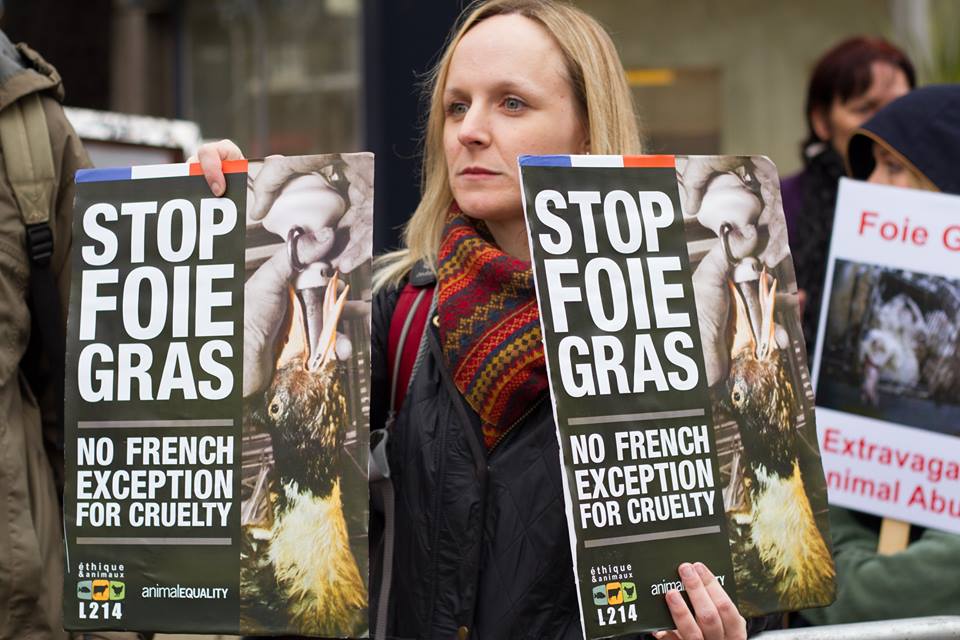
In the past several weeks, three incidents have compromised foie gras’ once esteemed place in French society.
1. A poll taken in France shows increased opposition to foie gras. In December, 47% of those surveyed said they would support a ban – a 3% increase from 2013. In addition, 77% said they would prefer foie gras that was not made through gavage, French for force feeding. (Foie gras is produced by force feeding ducks and geese through metal pipes until their livers become diseased, swelling up to ten times their normal size. The pipes are inserted 12″ down their gullets three times daily in the weeks leading up to slaughter.)
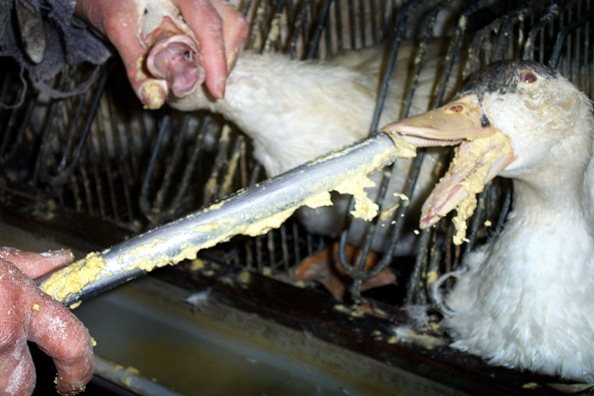
Gavage (force feeding)
2. Legendary actress Brigrette Bardot filed a formal appeal with the EU Commission to ban the production of foie gras. In an open letter to the Health Commissioner, she argued that, because many EU countries have already outlawed force feeding, the EU Commission should “harmonize laws against this cruel and barbaric practice” by banning it in all member countries. After all, she says, force feeding “goes against European values of promoting animal welfare.”

Photo: Corbis
3. British celebrity chef Heston Blumenthal dropped his foie gras supplier in France after The Daily Mirror released footage of dead and injured ducks that a veterinarian described as a “representation of hell.” A spokesman for his restaurant, which is ironically named Fat Duck, said, “We were shocked at the video and the conditions in which the ducks were apparently being kept.” Fat Duck is currently closed for renovations, but the menu on its website does not contain foie gras.
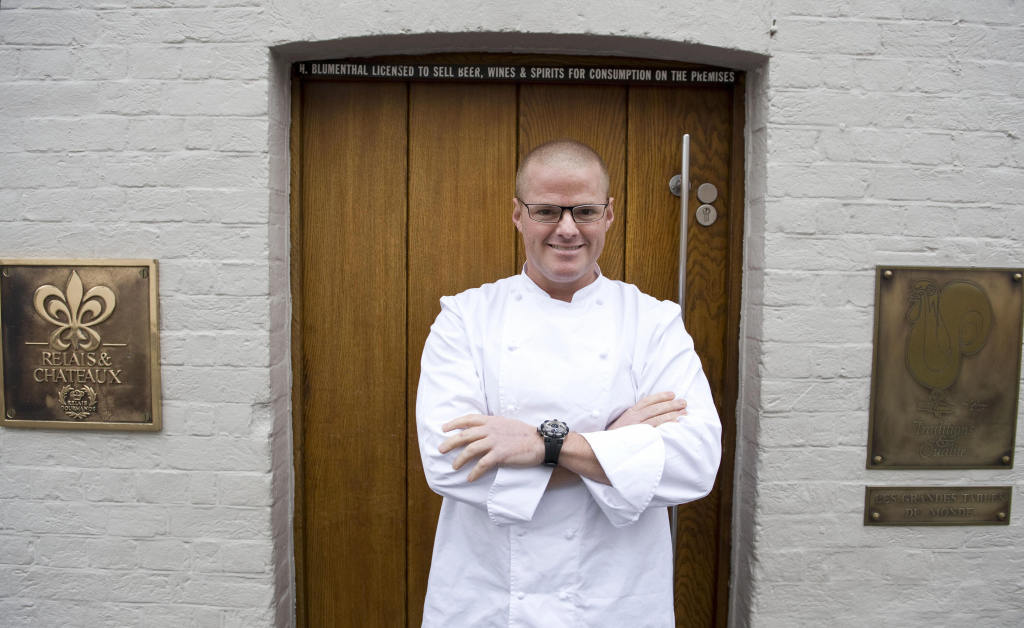
Chef Heston Blumenthal at Fat Duck in the U.K. (photo: BEN STANSALL/AFP/Getty Images)
The movement to ban foie gras is still young, but significant progress has made. In 2004, California banned the production and sale of foie gras. The law went into effect in 2012. In October, 2014, the U.S. Supreme Court dismissed a challenge to the California law, sending a strong message to other states that they can, as California Attorney General stated, pass laws that “prohibit the sale of products based on concerns about animal welfare.”
In the U.K., foie gras production is illegal, and activist groups are advocating to end the sale. Since August, Hertfordshire Animal Rights has stopped the sale of foie gras at least six restaurants.
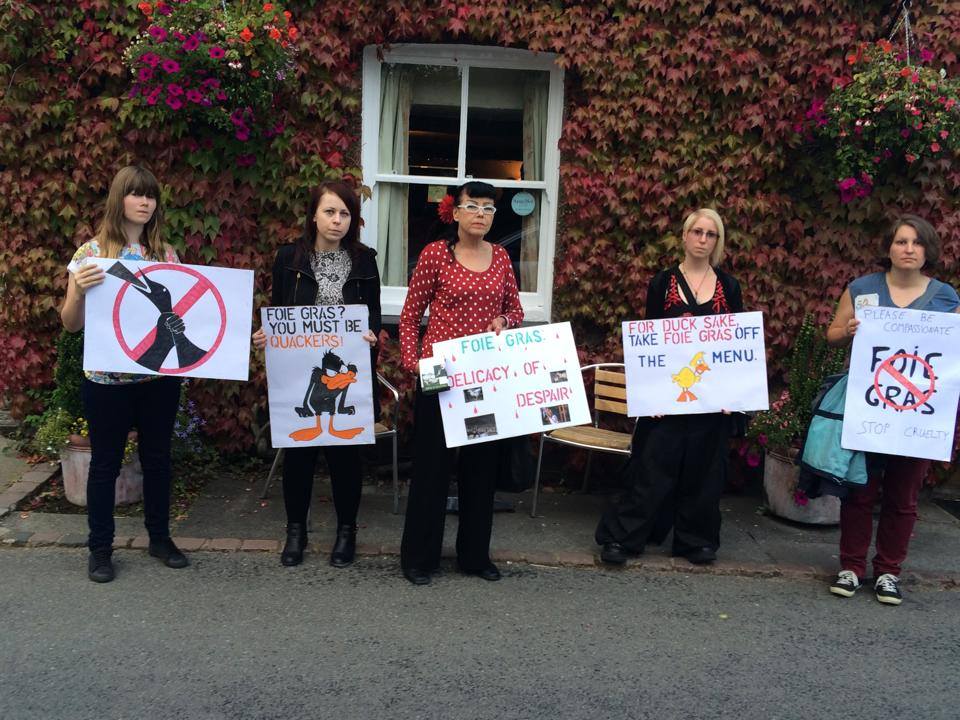
Hertfordshire Animal Rights
Israel, India and Argentina have imposed restrictions on the production, sale and/or importation of foie gras.
After France, the world’s largest producers of foie gras are Hungary (8%) and Bulgaria (6%). The U.S. produces just over 1% of the world’s supply.
As the public is increasingly exposed to the cruelty of foie gras production, “tradition” will become a much weaker justification. After all, if Barcelona can ban bullfighting, then France can – and eventually will – ban force feeding.





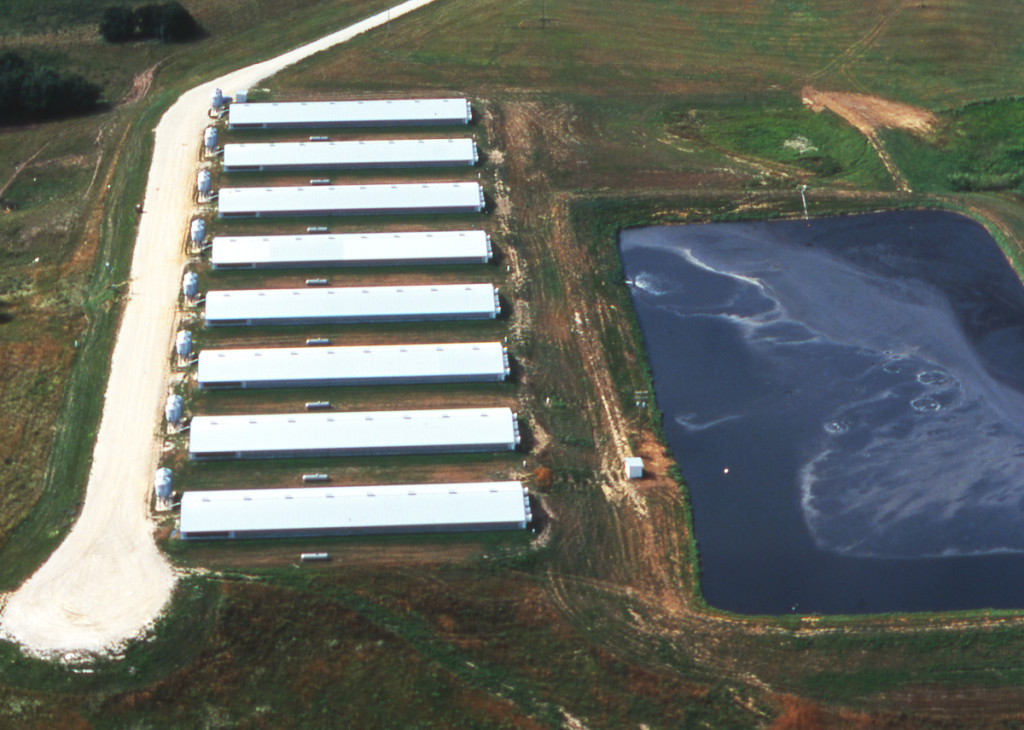
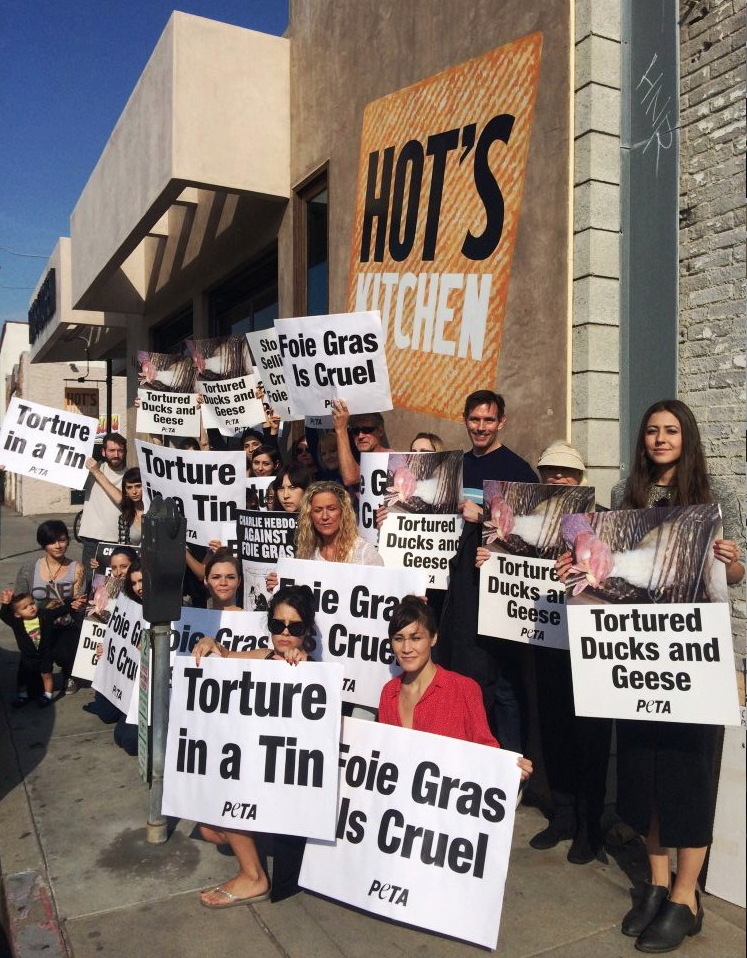
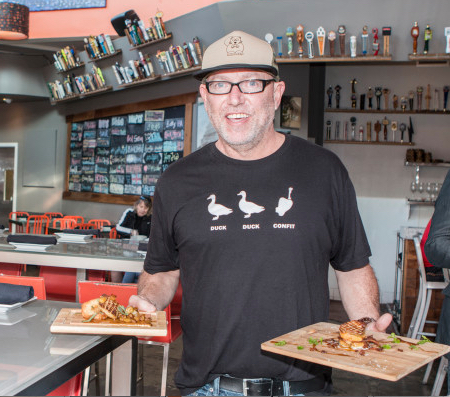




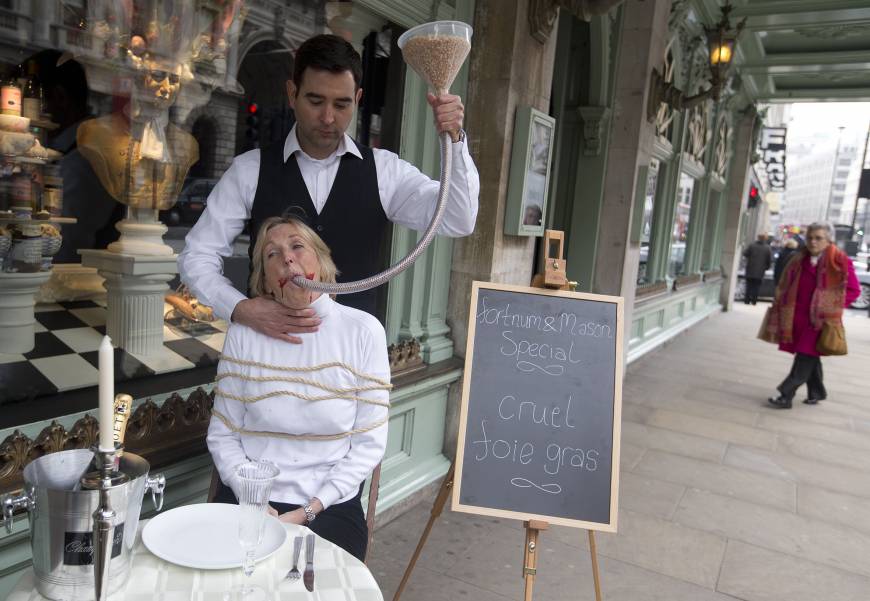


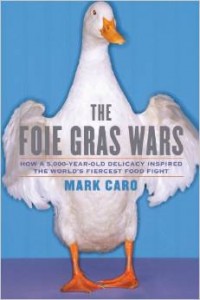
Follow Their Turn